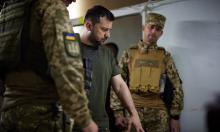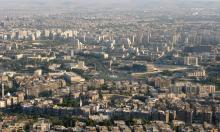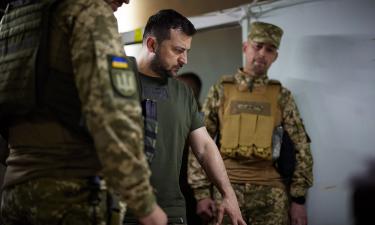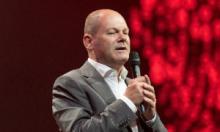Musharraf bids his troops farewell before standing down as army chief
Pakistan's military leader President Gen. Pervez Musharraf planned farewell ceremonies with his troops before he becomes a civilian leader of the state in effort to ease political crisis in the country.
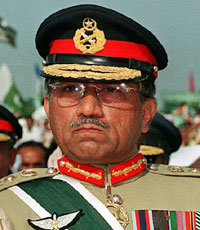
Musharraf was scheduled to meet with senior commanders and attend farewell ceremonies in Rawalpindi, a garrison city near the capital Islamabad , where the army has its headquarters and other key facilities.
Aides to Musharraf announced he would retire Wednesday as chief of Pakistan 's army, whose generals have ruled the country for most of its life since independence from British rule in 1947.
Musharraf spokesman Rashid Qureshi said the president would make "farewell visits" before ending a military career that began in 1964. Musharraf's successor, Gen. Ashfaq Kayani, a former chief of the country's powerful intelligence service, was expected to take charge Wednesday.
On Thursday, Musharraf "will take oath of office as president of Pakistan as a civilian," Qureshi said Monday.
The opposition has demanded that Musharraf relinquish his role as military chief, and rescind a state of emergency he declared on Nov. 3.
Musharraf has faced growing opposition since March, when he tried unsuccessfully to fire the Supreme Court's top judge.
The political crisis was aggravated when Musharraf declared his emergency rule, citing an increase in militancy in the country's northwest. The army general also accused the Supreme Court of overstepping its authority and paralyzing the government, just as it was about to rule on the validity of his victory in a recent presidential election.
Musharraf now faces strong opposition from two of his key opponents - Nawaz Sharif and Benazir Bhutto - both former prime ministers who have returned from exile in time for crucial parliamentary elections slated for Jan. 8.
Sharif, who was ousted by the 1999 coup that put Musharraf in power, and Bhutto both registered Monday to run in the election, but like other smaller opposition groups, they indicated their parties may boycott the vote to undermine its legitimacy.
Sharif, who returned home Sunday from Saudi Arabia, appealed for support from Pakistanis unhappy with Musharraf's alliance with the U.S., and the American-friendly stance of Bhutto, his one-time political archrival.
Sharif has sought to present himself as an independent politician, unlike Musharraf, who is criticized by many Pakistanis as a stooge of the U.S. President George W. Bush administration. Sharif has said that as premier he ignored U.S. advice not to conduct the nuclear test explosions that made Pakistan a nuclear power in 1998.
Such nationalist posturing could entice some voters away from Bhutto, who has wooed America , Pakistan's biggest sponsor, by suggesting she might let U.S. troops strike at Osama bin Laden if he is located on Pakistani territory.
America and its allies want Musharraf to lift his suspension of the constitution to ensure a fair election, which they hope will produce a moderate government willing and capable of standing up to religious extremists with ties to al-Qaida and the Taliban.
Musharraf has eased the crackdown on dissent that saw police detain thousands of opponents and take independent TV news off air.
A crackdown against opposition following the emergency, also broke Musharraf's relations with Bhutto, leader of the country's biggest opposition party who was twice put under house arrest to stop her from leading mass rallies against the unpopular general.
Bhutto says the election is stacked in favor of Musharraf's ruling party, but said she wouldn't participate in a boycott of the vote unless all opposition groups did - a tall order given the fractious relations among Pakistan 's many political blocs.
Subscribe to Pravda.Ru Telegram channel, Facebook, RSS!
